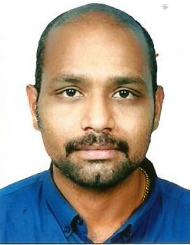
1.56 million migrants currently work in Oman. India, Pakistan, and Bangladesh are the primary countries of origin. A large proportion of the migrants working in Oman are undocumented, which has led to the government introducing harsh deportation strategies impacting on migrants who overstay or do have not obtained appropriate papers. Rejimon is an Indian journalist who works in Oman as a Senior Reporter at the Times of Oman. Rejimon views migration as a significant issue in Oman, and has published more than 400 stories on migrant related issues during the last five years. As such, he exemplifies the impact that more traditional forms of media can have when advocating for change.
He actively and personally engages with migrant workers, publishing stories and filing reports on the violations of their rights. Well-balanced reports continue to have positive impact in Oman, drawing attention to issues and stories that may otherwise be overlooked. Often, issues highlighted in stories have been directly addressed by authorities in Oman. For example, reports on the payment for workers through banks, and the need for a clarification of requirement of non-objection certificate were implemented only after repeated stories published on those issues.
More recently, after repeated stories on undocumented migrant workers and the government’s harsh deportation strategies, the government has initiated a plan to announce amnesty. It may be announced in the early months of 2015. Amnesty for undocumented workers would be beneficial in two respects: it would provide trapped migrants with a straightforward means of returning to their country of origin without facing legal action, as well as reducing the frequency of raids and arbitrary arrests as part of the Government’s current deportation strategy.
Additionally, Rejimon works with social workers in the Sultanate of Oman and his reporting has inspired social workers to highlight instances of abuse or mistreatment of migrant workers that come to their attention. He actively participates in Open Houses, which is a forum held each working day, to discuss migrant issues and seek solutions, organised by the Indian Embassy in Muscat.
Rejimon sees national ratification of the CMW as important, but believes there is a long way to go before ratification will be a possibility. Currently Rejimon is focused on small scale issues that affect migrant workers directly. Some examples include implementing a standardised job contract for all migrant workers and ensuring all migrant workers have access to health insurance, regardless of their pay scale. Making progress on these issues would solve umpteen number of problems, even before ratification is considered.
DTP acknowledges the traditional custodians of the land on which we work, the Bedegal people of the Eora Nation. We recognise their lands were never ceded, and we acknowledge their struggles for recognition and rights and pay our respects to the Elders – past, present – and the youth who are working towards a brighter tomorrow. This continent always was and always will be Aboriginal land.
Aboriginal and Torres Strait Islander peoples should be aware that this website contains images or names of people who have passed away.
DTP acknowledges the traditional custodians of the land on which we work, the Bedegal people of the Eora Nation. We recognise their lands were never ceded, and we acknowledge their struggles for recognition and rights and pay our respects to the Elders – past, present – and the youth who are working towards a brighter tomorrow. This continent always was and always will be Aboriginal land.
Aboriginal and Torres Strait Islander peoples should be aware that this website contains images or names of people who have passed away.
Privacy Policy | Terms of Use | Disclaimer | Policies
© 2022 Diplomacy Training Program | ABN 31 003 925 148 | Web Design by Studio Clvr